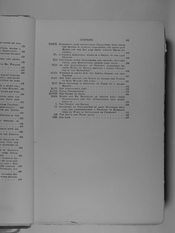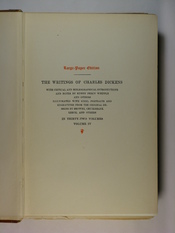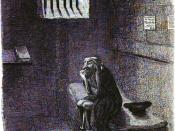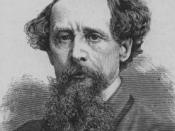In Charles Dickens's Oliver twist, Oliver is said to have lived in a cruel and uncharitable society. I agree with this statement. In Oliver's society people look down on the poor and do not pity others. They are greedy, self-centered and do not feel any guilt in leaving people starving or dying. Charles Dickens tries to describe a poor child's life in the times that the poor laws were being introduced. From this description one can assume that the life of poor individuals in these times were very hard-going. There was stereotyping and prejudice among the rich people and this affected their views on Oliver before they even met him. They were put into workhouses so they would be serving a purpose instead of roaming freely. But many children died in places like this. No one cared about the poor and probably thought that they were better of dead.
g In Charles Dickens's Oliver twist, Oliver is said to have lived in a cruel and uncharitable society. I agree with this statement. In Oliver's society people look down on the poor and do not pity others. They are greedy, self-centered and do not feel any guilt in leaving people starving or dying. Charles Dickens tries to describe a poor child's life in the times that the poor laws were being introduced. From this description one can assume that the life of poor individuals in these times were very hard-going. There was stereotyping and prejudice among the rich people and this affected their views on Oliver before they even met him. They were put into workhouses so they would be serving a purpose instead of roaming freely. But many children died in places like this. No one cared about the poor and probably thought that they were better of dead. In Charles Dickens's Oliver twist, Oliver is said to have lived in a cruel and uncharitable society. I agree with this statement. In Oliver's society people look down on the poor and do not pity others. They are greedy, self-centered and do not feel any guilt in leaving people starving or dying. Charles Dickens tries to describe a poor child's life in the times that the poor laws were being introduced. From this description one can assume that the life of poor individuals in these times were very hard-going. There was stereotyping and prejudice among the rich people and this affected their views on Oliver before they even met him. They were put into workhouses so they would be serving a purpose instead of roaming freely. But many children died in places like this. No one cared about the poor and probably thought that they were better of dead.
In Charles Dickens's Oliver twist, Oliver is said to have lived in a cruel and uncharitable society. I agree with this statement. In Oliver's society people look down on the poor and do not pity others. They are greedy, self-centered and do not feel any guilt in leaving people starving or dying. Charles Dickens tries to describe a poor child's life in the times that the poor laws were being introduced. From this description one can assume that the life of poor individuals in these times were very hard-going. There was stereotyping and prejudice among the rich people and this affected their views on Oliver before they even met him. They were put into workhouses so they would be serving a purpose instead of roaming freely. But many children died in places like this. No one cared about the poor and probably thought that they were better of dead.
In Charles Dickens's Oliver twist, Oliver is said to have lived in a cruel and uncharitable society. I agree with this statement. In Oliver's society people look down on the poor and do not pity others. They are greedy, self-centered and do not feel any guilt in leaving people starving or dying. Charles Dickens tries to describe a poor child's life in the times that the poor laws were being introduced. From this description one can assume that the life of poor individuals in these times were very hard-going. There was stereotyping and prejudice among the rich people and this affected their views on Oliver before they even met him. They were put into workhouses so they would be serving a purpose instead of roaming freely. But many children died in places like this. No one cared about the poor and probably thought that they were better of dead.
In Charles Dickens's Oliver twist, Oliver is said to have lived in a cruel and uncharitable society. I agree with this statement. In Oliver's society people look down on the poor and do not pity others. They are greedy, self-centered and do not feel any guilt in leaving people starving or dying. Charles Dickens tries to describe a poor child's life in the times that the poor laws were being introduced. From this description one can assume that the life of poor individuals in these times were very hard-going. There was stereotyping and prejudice among the rich people and this affected their views on Oliver before they even met him. They were put into workhouses so they would be serving a purpose instead of roaming freely. But many children died in places like this. No one cared about the poor and probably thought that they were better of dead.
Children were stuffed into over crowded workhouses so they could serve their country instead of roaming around and causing havoc. But the workhouses were dreadfully corrupted. They kept the children's money for themselves and worked them down to exhaustion and fed them as little as possible. When they failed to complete enough work they would be punished or beaten. The children worked starved and exhausted and their work suffered from this. They would then be punished for not doing enough work and be called lazy. And so it went in this vicious cycle. Of course, many children died in places like this but no one cared because they were only abandoned and lowly orphans. Dickens' tries to show people how awful life in the workhouse is and how little they are fed. "One boy had one porringer and no more⦠The bowls never needed washing - the boys polished them with their spoons⦠This never took very long, the spoons being nearly as large as the bowls; they would sit staring at the copper with such eager eyes as if they could devour the very bricks of which it was composed." Pg 14. These boys were expected to put up with these conditions and be grateful for what they've got. It was unthinkable that one of them should complain. Dickens' shows us how appalled the workhouse staff is when Oliver just simply asks for some more food.
"'Please, sir, I want some more' the master turned very pale. He gazed in stupefied astonishment⦠'What?!' said the master in a faint voice. 'Please, sir⦠I want some more.' The master aimed a blow at Oliver's head⦠and shrieked aloud for the beadle⦠'I beg your pardon, sir; - Oliver has asked for more!'⦠Horror was depicted on every countenance⦠'That boy will be hung,' said the gentleman in the white waistcoat." Pg 15.
Bibliography:www.sparknotes.com/lit/oliver/canalysis.htmlwww.enotes.com/oliver-twistwww.searchlit.org/novels/476.php





